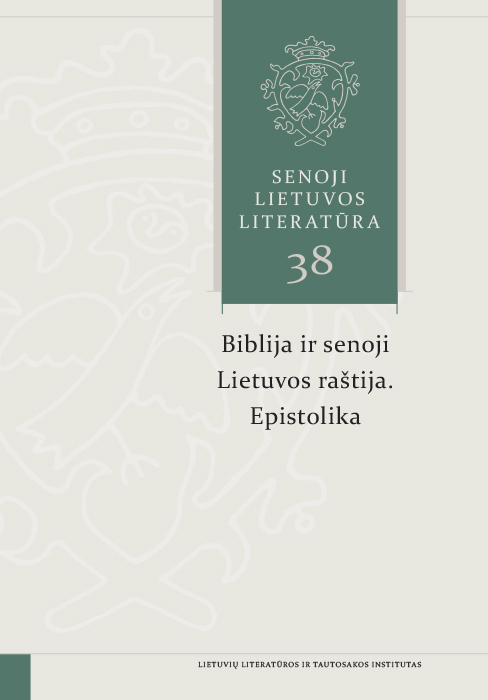Transformations of Biblical Sources in Sarbievius’ Religious Poetry
Abstract
The author discusses the peculiarities of post-Tridentine imagery that show up in Sarbievius’ works based on biblical material. Like his contemporaries Jesuit poets, in poetic practice Sarbievius, Poeta Christianus, respects changed requirements imposed on Christian authors: biblical sources permeate many of his poetical texts. In Sarbievius’ religious poetry, however, just like in numerous sixteenth-seventeenth-century texts, sometimes the object of imitation is not a primary source, but its interpretation that is much closer from the temporal point of view. Biblical paraphrases hiding in Sarbievius’ numerous verses under the formal cover of classical images and metric structures have not been fully deciphered yet. The author sums up that the analysis of some of the verses shows that in these works Sarbievius masterfully realizes the Baroque notions of the unity of opposites and the paradox of poetical material. Sarbievius’ religious epigrams, especially those paraphrasing the Song of Songs, should be attributed to the genre of mystical poetry due to the transcendental tension realised through complex means.
Most read articles by the same author(s)
- Ona Daukšienė, Sigismundus Laetus – Žygimantas Liauksminas? On Some Mysterious Addressees of Sarbievius’s Odes , Senoji Lietuvos literatūra: Vol. 44 (2017): Senoji Lietuvos literatūra
- Matas Nevė, Eugenija Ulčinaitė, Ona Daukšienė, The Radvila’s Tapestry (translated from Latin by Eugenija Ulčinaitė) , Senoji Lietuvos literatūra: Vol. 40 (2015): Senoji Lietuvos literatūra
- Ona Daukšienė, Asta Vaškelienė, Annotations , Senoji Lietuvos literatūra: Vol. 45 (2018): Senoji Lietuvos literatūra
- Ona Daukšienė, Sola fides sufficit: Polemical Elements in Binarius Chalecianus (1642) , Senoji Lietuvos literatūra: Vol. 45 (2018): Senoji Lietuvos literatūra




